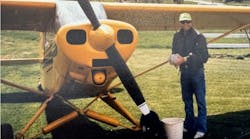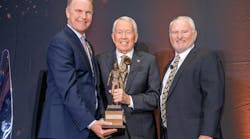Today, booking a charter flight can be as easy as tapping a few buttons on your mobile device. But that doesn’t mean the flight is legal or safe.
The FAA’s top priority is ensuring the safety of the traveling public, and it’s critical that both pilots and passengers (PDF) confirm that the charter flights they’re providing and receiving comply with all applicable Federal Aviation Regulations.
If you pay for a charter flight, you are entitled to a higher level of safety than is required from a free flight from a friend. Among other things, pilots who transport paying passengers must have the required qualifications and training, are subject to random drug and alcohol testing, and the aircraft used must be maintained to the high standards that the FAA’s charter regulations require.
The FAA recently sent a letter about this issue (PDF) to a company called Blackbird Air that created a web-based application that connects passengers with pilots. The letter emphasizes an FAA policy (PDF) about the requirements for pilots who are paid to fly passengers. The policy states that pilots who are paid to fly passengers generally can’t just hold the required Commercial or Airline Transport pilot license – they also must be employed by the company operating the flight, which must hold a certificate issued under Part 119 of the Federal Aviation Regulations. Or the pilots must themselves hold a Part 119 certificate.
Any pilot who provides charter flights without complying with the Part 119 certificate requirement would be violating the Federal Aviation Regulations – even if they possess a Commercial or Airline Transport Pilot license. The FAA’s determination has been upheld in federal court (PDF).
A current listing of FAA-licensed charter providers is available on our website.


